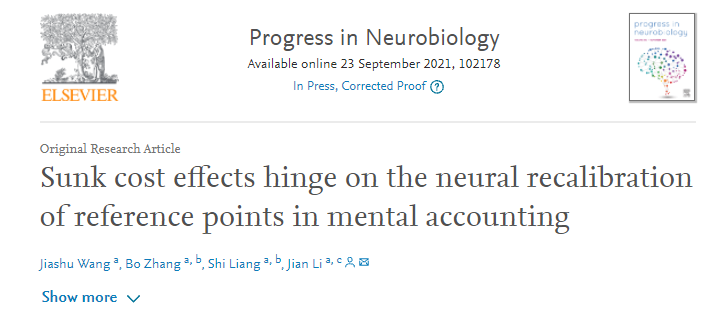Dr. Jian Li: Sunk cost effects hinge on the neural recalibration of reference points in mental accounting

Abstract
The context of reinforcement history drastically influences human value-based choices. Mental accounting theory concerns how prior outcomes are perceived, combined and assigned into specific “mental” accounts to influence subsequent decisions but remains agnostic about the underlying computational and neural mechanisms. In a two-stage sequential decision-making task, we found previously incurred costs and bonuses biased subjects’ choices in the opposite directions with similar magnitudes. Such effects were consistent with a computational model where the reference point was recalibrated by prior gains and losses encoded in the ventral striatum activities. Moreover, individual’s susceptibility to prior outcomes was captured by the response of the dorsolateral prefrontal cortex and its functional connectivity with the medial orbitofrontal cortex, whose activity tracked the value of the chosen option. Our findings provide both behavioral and neural evidence of how sunk costs, benefits, and prospects are integrated within the mental accounting framework to influence choice behavior.
Original Link: https://www.sciencedirect.com/science/article/pii/S0301008221001921